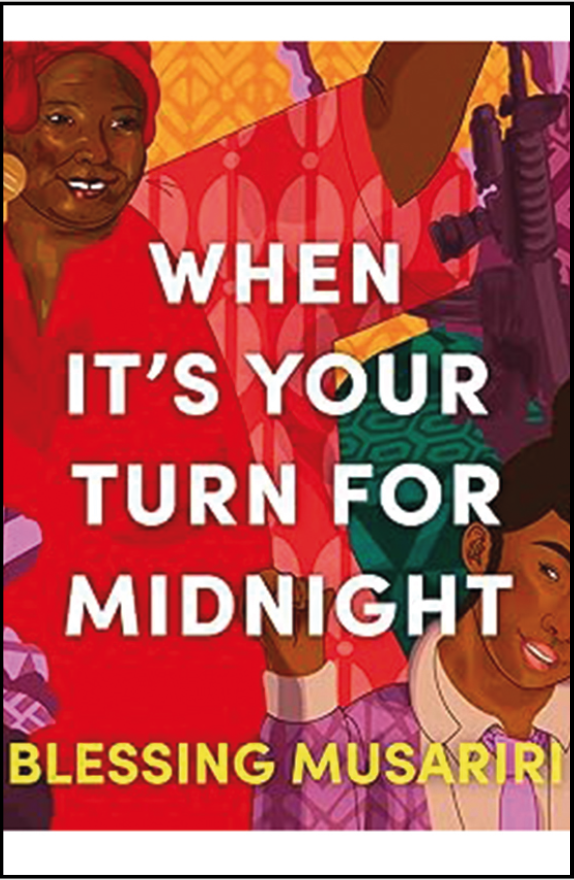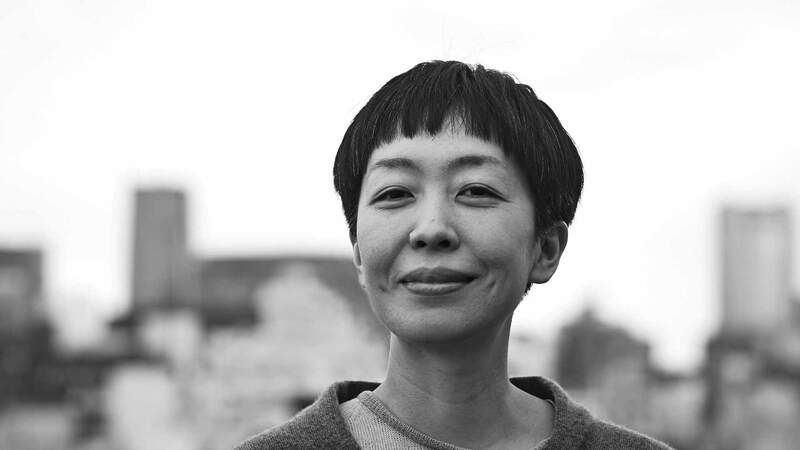You are viewing your 1 free article this month. Login to read more articles.
Blessing Musariri discusses how YA got her back into writing
 Charlotte Eyre
Charlotte EyreCharlotte Eyre is the former children’s editor of The Bookseller magazine, and current children's books previewer. She has programmed ...more
As she releases her most personal book yet, the acclaimed Zimbabwean author discusses her maturation as a writer.

Charlotte Eyre is the former children’s editor of The Bookseller magazine, and current children's books previewer. She has programmed ...more
War, national independence, family dynamics and inspirational women are all part of the upcoming YA novel When It’s Your Turn for Midnight, from the critically acclaimed Zimbabwean author Blessing Musariri.
Musariri’s heroine is Chiante, a modern-day teenager whose life implodes when she discovers that her family has been hiding a secret about her Baba (father). When everyone in her nuclear family (including Chiante herself) fails to mend their relationships after the shattering revelation, she decides to flee to the home of her grandmother, an ex-combatant in Zimbabwe’s war of liberation, who now makes her living by running a fashion-upcycling business with other former fighters.
When It’s Your Turn for Midnight is Musariri’s most personal book yet. The War of Liberation was a huge part of her childhood (she was between five and six when the country came out of the war and became Zimbabwe), and her own parents were at one point accused of helping terrorists, and detained after aiding fighters in the bush.
The “totally wild” ex-combatants in the story are based on people in a friend’s family, and the storyline about Chiante’s father is based on a popular TV show in Zimbabwe about DNA testing. Plus, the upcycled fashion markets are huge.
In many ways, the stars are the older generation, who Musariri says could be regarded as superheroes. They refused to live a traditional life, fleeing their homes to go into the bush and fight with male soldiers, and they continue to live proud and unconventional lives as elders because of their history. They aren’t afraid of risk, says Musariri, adding: “It gives them a larger lease of life than everybody else because they know that they got a second chance and survived the odds.” She portrays a country that is changing, and the lives of the grandmother’s generation are very different from how Chiante – a modern teenager – experiences the world. Like Musariri, the characters straddle two worlds.
Rooted in the past
“We came from a time where we were crossing over from having a very traditional type of upbringing to a more modern, westernised and urbanised way of living,” she says. “We are moving to the future, but because our home life is still rooted in the past, there’s always that influence.”
Chiante matures and grows by being in the company of her elders. “She learns that life is not always going to be how you want it to be, and sometimes when circumstances are outside of your control, you’ve got to be the one to sort of fight through it and not only survive it, but to make the best out of it,” says the author. “Not to just come out of it… but to thrive in spite of the challenges.”
She also comes to understand that families are “not cookie-cutter” but are made up of the people who are there for you, no matter what. “Your family isn’t necessarily going to be the same as the next person’s family, and it doesn’t make it any better or any worse. It is what it is,” Musariri says. “And if it’s something that is uplifting, if it embraces you, if it builds you, then that’s great. That’s what family should be.”
When It’s Your Turn for Midnight is Musariri’s second YA novel published in the UK, after All That It Ever Meant, but she has been writing in many different genres for years As a child, her love of literature was fuelled by visits to the library in Harare, where she loved Enid Blyton and Nancy Drew. In high school, she wrote romance stories based on her friends’ dating lives. After university, a conversation with her now brother-in-law prompted her to start “writing properly” and she started doing romances and poetry.
Your family isn’t necessarily going to be the same as the next person’s family, and it doesn’t make it any better or any worse. It is what it is
The first long-form book she published was a romance for a South African publisher, and she released a children’s book in 2008. In 2019, she published a YA novel in Canada (co-written with Thorsten Nesch) but soon afterwards considered giving up writing altogether.
But when a friend convinced her to join a new branch of the Society of Children’s Book Writers and Illustrators (SCBWI), she found herself working on children’s books again, and ended up meeting Sarah Odedina, publisher and director of Accord Literary (an agency for children’s book writers based in Africa).
It was Odedina who suggested Musariri write down stories based on her family. “I initially hadn’t decided what had happened to the mother when I started writing a story, but it just sort of all fell into place,” she says. “And that’s how I came back into writing, because after writing my dystopian novel, I didn’t write anything for about six years.”
The resulting book, All That It Ever Meant, was named one of the best books of 2023 in both the Observer and the Irish Times, and Musariri says the success of the novel still doesn’t feel real. It’s “lovely” but also “weird”, coming as it does after “years” of rejection.
“I put a lot of effort into my life in the years past, and I pushed and pushed and pushed, and all I got for it was exhaustion from pushing,” she admits. “I’m not saying you don’t have to work, but a lot of the time you try to make things happen, and they just happen when they happen.”
All That It Ever Meant has been her most successful book so far, for which Musariri says she remains extremely grateful. “I’m so happy to finally feel like I’m a part of it because for so long I was just watching other people be in those spaces,” she explains. “I had actually just stopped trying to be there, and then it just kind of happened. It’s amazing.”
Book Extract
When I was little and I would cry, Mama used to set an alarm clock and say: “You have two minutes – when that alarm rings, wrap it up.”There was an implied threat, but I never found out what might happen – I always followed the instruction. After that, I stopped crying altogether. Mama once said to her mother – Ambuya Precious – "Chianti’s tears are gold, Mama, extremely precious and rare, they don’t come for nothing.”
She may have regretted training me that well, because she had a hard time figuring me out. Except for when I was angry and those unshed tears turned into words. When I’m angry my words are lava and they even burn me. About three weeks ago, a steady stream of lava rained from my heart. A deep cavern opened and I couldn’t control the hot things that escaped. After the eruption, I didn’t say another word to Mama. I packed my bags and hitch-hiked from Harare to Ambuya’s in Mutare. Ambuya did not scold me for risking my life – after all, I could have been abducted and assaulted, murdered for body parts in evil magic, or simply disappeared to some unnamed fate.
She opened the front door and said: “There’s no one to cook and clean after you. Think carefully before you take another step.” I took one step, then another, dragging my bag behind me. “Close the door after you,” she said.









